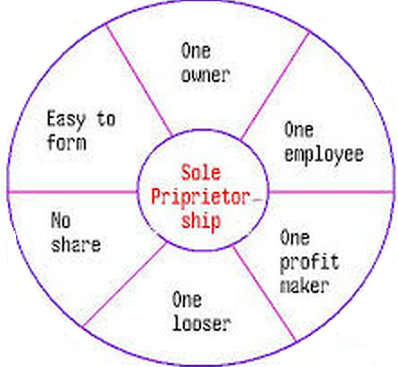Different interested group in
business
In present time, it is not possible
that a business only concentrate the profit making while totally ignore the
social – economical relationship. There are lot of interested group in society
which is directly connected by business like shareholder, employees, consumers,
suppliers, and government. Here, we mention some important interested group in
business: -
Share
holder: - we also
call them the “owner”. They require a adequate return on investment. They have
complete information & a clear picture about profit and always looking for
a hike in share value.
Employees: - employee requires a fair wages
which take cares their living cost & growth. These require a job satisfaction
environment. They are must be motivated by financial or non-financial, better
working condition, medical care, retirement benefits.
 |
| Different interested group in business |
Consumers: - every business depends on
customer behaviour. If a business has lot of customers it shows its growth story
& satiability. Every output like goods and services require customers and
customers require all things with a standard and quality in a minimum price. A
business also gives attention to any fault & repair, replacement, poor
complaint handling and failure to delivery of goods on time.
Suppliers
& creditors: - every
business requires raw materials, labors, machines for a timely delivery of their
goods and services. A business must pay a fair price to its suppliers for good
quality materials & on timely delivery. It’s also requiring a timely
payment to creditors also.
Government: - it is our duty to follow the
rules passed by local, states or central government. It must a co-operation
with policy maker to form a good policy with a good working environment.
Community: - the responsibility of a
business for community is very important factor. Mostly, we divide it into two
parts, first – as regards social, political & environment and second is
improving the living condition or standard of peoples or human being.
















